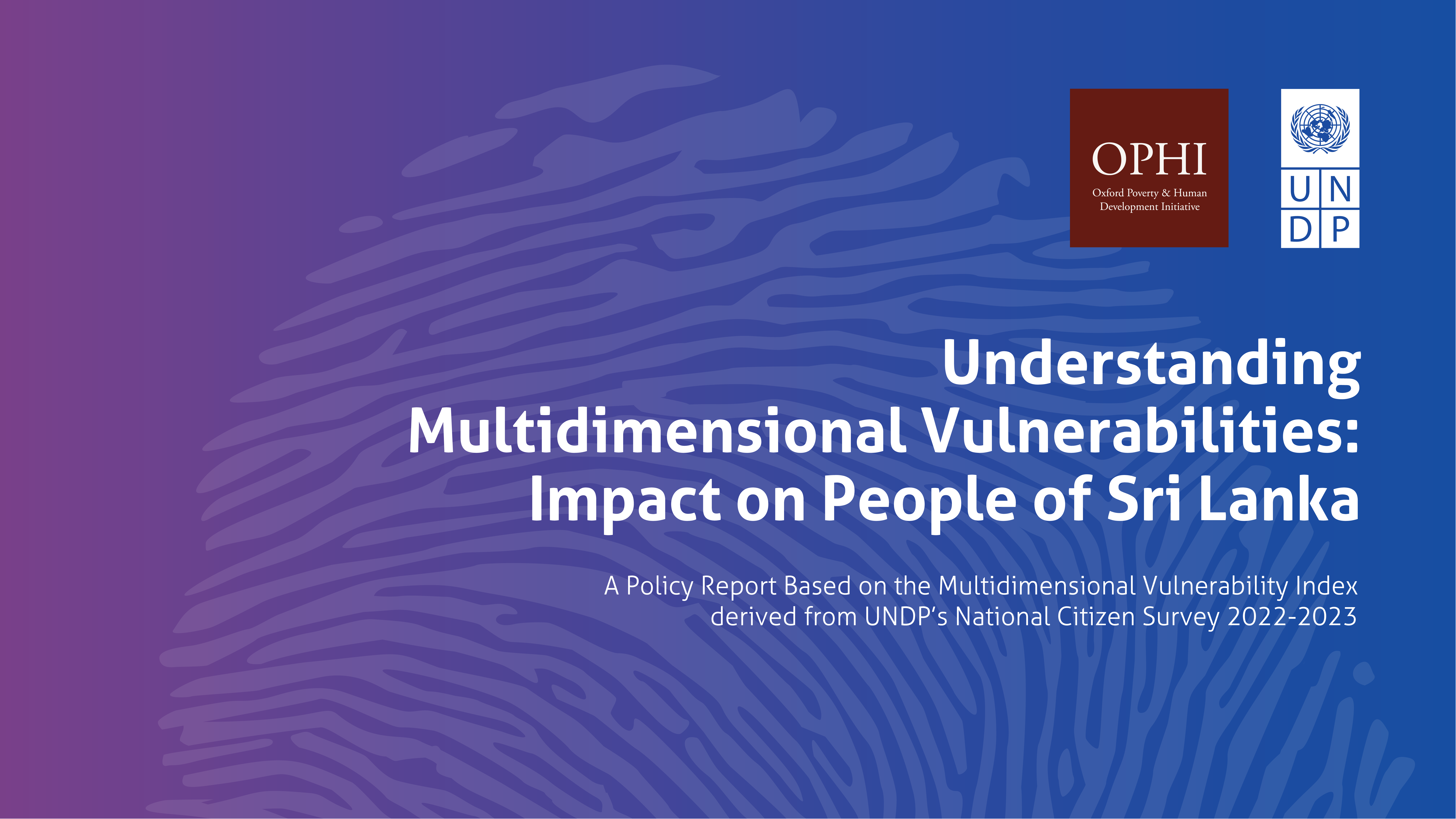UNDP Sri Lanka’s National Citizen Survey and Multidimensional Vulnerability Index

In an era where data-driven decision-making is paramount, the United Nations Development Programme (UNDP) has taken a significant step forward in understanding and addressing vulnerabilities in Sri Lanka. With the support of its core partners, UNDP launched the National Citizen Survey (NCS) 2022-2023, a pioneering effort that provided a comprehensive picture of household vulnerabilities across the country. The initiative, culminating in the development of the first Multidimensional Vulnerability Index (MVI), marks a crucial milestone in ensuring targeted and effective recovery responses.
A Nationwide Effort to Capture Realities on the Ground
The NCS, conducted from November 2022 to March 2023, stands as one of the most extensive household surveys conducted in recent years in Sri Lanka, covering a nationally representative sample of 25,042 households across all 25 districts. Designed with technical guidance from the Department of Census and Statistics (DCS), the survey ensures proportional representation of both urban and rural populations.
With technical assistance from UNDP’s SURGE Data Hub and funding from core partners, this ambitious data collection effort resulted in a publicly accessible dataset, available for download or exploration via an interactive dashboard. Additionally, a series of focus group discussions provided qualitative insights, enriching the overall analysis. These efforts have laid the foundation for evidence-based policymaking that responds to the diverse needs of Sri Lanka’s population.
Introducing the Multidimensional Vulnerability Index (MVI)
A key output of the NCS is the MVI, developed in collaboration with the Oxford Poverty and Human Development Initiative (OPHI). The MVI focuses on vulnerabilities as opposed to poverty – i.e., what factors could put someone at risk of falling into poverty. It goes beyond conventional measures of poverty, such as financial or income-based indicators, and considers a broader range of intersectional factors, which are crucial in gauging the extent of vulnerabilities during a crisis. The index captures vulnerabilities across three critical dimensions:
- Education
- Health and Disasters
- Living Standards
Each dimension is further measured through 12 indicators, offering a nuanced understanding of deprivation levels. The findings indicate that 55.7% of Sri Lankans experience multidimensional vulnerabilities, emphasizing the urgent need for targeted interventions.
Translating Data into Action
The findings from the MVI have already begun informing national policy discussions. The structure of the MVI allows for the unpacking of the factors that drive multidimensional vulnerabilities in different areas. For instance, the highest vulnerabilities were observed in Puttalam, where a significant portion of the population faces deprivation in areas such as disaster preparedness and access to clean water. These insights provide a roadmap for targeted interventions that directly address the most pressing challenges, informing policy and resource allocations.
In September 2023, UNDP launched a policy report, Understanding Multidimensional Vulnerabilities: Impact on People of Sri Lanka, offering a detailed analysis of the MVI. The report, developed with expert guidance from an advisory panel, presents key policy recommendations in areas such as: social protection and support for persons with disabilities; household debt mitigation; strengthening climate and disaster resilience; and enhancing educational opportunities.
A critical takeaway from this analysis is the need for Sri Lanka to adopt an official national MVI as part of its regular statistical exercises. By institutionalizing the MVI, policymakers can systematically track vulnerabilities and design effective, evidence-based solutions.
UNDP Core Partners
None of this progress would have been possible without the financial contributions of UNDP’s core partners. This support was instrumental in developing the survey, refining the MVI, and ensuring the broad dissemination of findings. By investing in data-driven solutions, these partners are playing a vital role in shaping policies that improve lives and build resilience among vulnerable communities in Sri Lanka.
As UNDP continues its commitment to inclusive development, the National Citizen Survey and the Multidimensional Vulnerability Index serve as powerful tools to guide national recovery efforts. By leveraging data for action, Sri Lanka can move towards a more equitable and resilient future. To know more: https://www.undp.org/srilanka/mvi

 Locations
Locations
